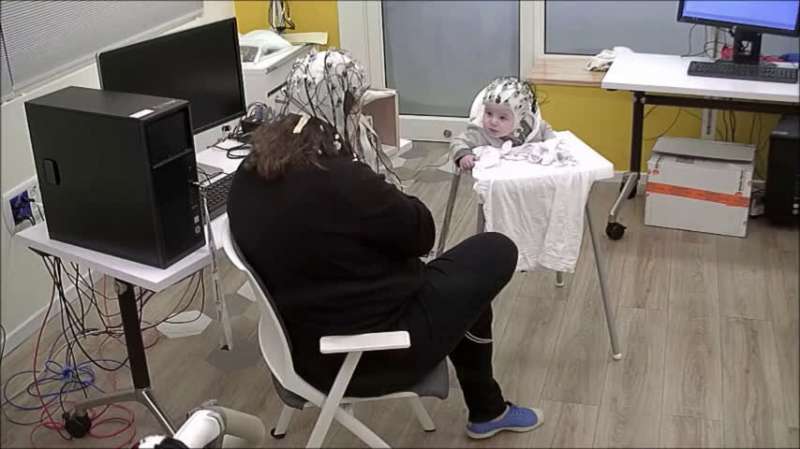December 13, 2021 report
Babies found to be more likely to accept unfamiliar women when the odor of their mother is present

A team of researchers from the Interdisciplinary Center, in Israel, working with a colleague from Canada, has found that babies are more likely to accept an unfamiliar woman when the odor of their mother is present. In their paper published in the journal Science Advances, the group describes experiments they conducted with volunteer moms, their babies and other unfamiliar women.
In this new effort, the researchers wondered if part of the connection between mothers and their babies is maternal odor. To find out, they enlisted the assistance of 62 mothers and their babies (average age seven months) and another group of women who were roughly the same age as the mothers.
The researchers first asked the mothers to sleep in a T shirt for two consecutive nights prior to the experiments. They then asked the mothers to bring the T shirts with them to their test lab. In the lab, the mothers and babies were both fitted with electrode caps to study their brain waves as the mother and baby were first asked to sit back-to-back and then facing one another.
Next, the babies were given a T to hold while seated facing a woman (who also wore an electrode cap) they had never seen before. Some of the T shirts were brand new and never worn, while others were the T shirts worn by their mothers.
The researchers then studied the data. In looking at the first scenario, they found more synchrony in brain waves between mother and baby when they were seated face to face than back-to-back. They also found that babies given their mother's T shirts had similar brain synchrony with the unfamiliar woman as they had had when seated face to face with their mother. The babies holding new T shirts had markedly lower synchronicity. They also found that the babies were more likely to smile and gaze at the stranger when holding their mother's T shirt.
The researchers suggest their findings indicated that maternal body odor is a source of bonding—one that can be used with strangers.
In a somewhat related study, a team of researchers at the Weizmann Institute of Science found that the scent of newborn infants blocked aggression in men but stimulated aggression in women.
More information: Yaara Endevelt-Shapira et al, Maternal chemosignals enhance infant-adult brain-to-brain synchrony, Science Advances (2021). DOI: 10.1126/sciadv.abg6867
© 2021 Science X Network


















